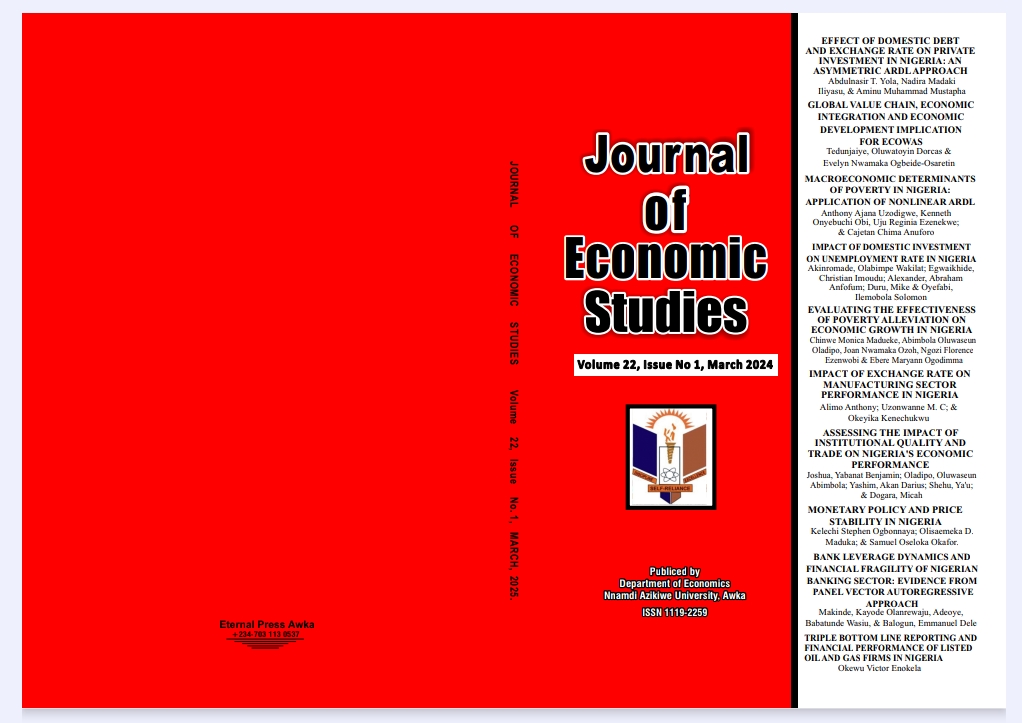MONETARY POLICY AND PRICE STABILITY IN NIGERIA
Keywords:
Monetary policy, monetary policy tools, price stability, Inflation, Nigerian EconomyAbstract
Inflation remains a persistent challenge in Nigeria, driven by rising prices of goods and
services, which create uncertainty and discourage investment. Structural issues such as reliance
on oil revenue, limited economic diversification, and political instability further complicate
monetary policy efforts to maintain price stability. This study examines the impact of monetary
policy tools on inflation in Nigeria, focusing on the monetary policy rate (MPR), money supply
(MS), exchange rate (ER), lending rate (LR), petrol price (PP), and import commodity price
index (ICP). Using annual time-series data from 1981 to 2023, the Autoregressive Distributed
Lag (ARDL) model is applied to analyse both short- and long-run dynamics. The results show
that money supply, petrol prices, and import prices have statistically significant positive effects
on inflation, identifying them as key inflationary drivers. Conversely, the effects of the MPR
and lending rate are not statistically significant, indicating that interest rate policies alone may
not effectively curb inflation. Granger causality analysis reveals a unidirectional causality from
exchange rate to inflation, highlighting the importance of exchange rate stability. The study
recommends that the Central Bank of Nigeria adopt an inflation-targeting framework, enhance
policy transparency, and align monetary policy with supportive trade and fiscal strategies.
Structural reforms aimed at economic diversification and reduced reliance on oil revenue are
also essential to improving monetary policy effectiveness and ensuring long-term price
stability.


